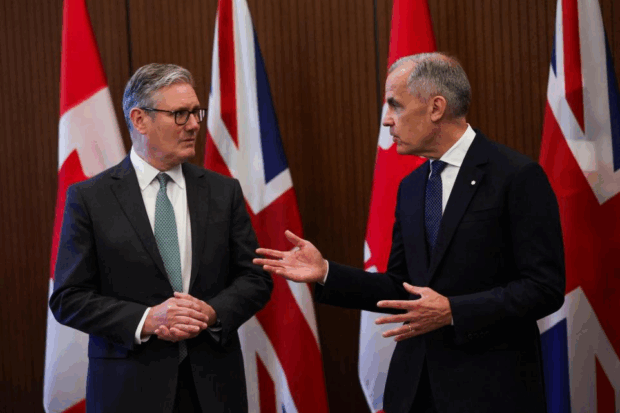
The Nigerian House of Representatives has launched an investigation into allegations that the Nigerian National Petroleum Company Limited (NNPCL) withheld N8.48 trillion in claimed fuel subsidies. The House Committees on Finance and Petroleum (Upstream and Downstream) have been tasked with verifying the total amount of unremitted revenue from petrol sales by the NNPC between 2020 and 2023.
This investigation comes amidst the House’s approval of the 2025-2027 Medium Term Expenditure Framework (MTEF) and Fiscal Strategy Paper (FSP), key documents outlining the country’s fiscal policy and expenditure plans.
The MTEF/FSP, recently transmitted to the National Assembly by President Bola Tinubu, sets the oil benchmark for 2025 at $75 per barrel, with oil production projected at 2.06 million barrels per day. The exchange rate is pegged at N1,400 per dollar, and the projected GDP growth rate is 6.4% per annum.
During the House’s consideration of the MTEF/FSP, several contentious issues emerged, including the oil benchmark and projected domestic crude oil production. Lawmakers debated the appropriateness of the $75 benchmark, with some arguing for a higher figure based on recent oil price trends.
The House Committee on Finance defended the $75 benchmark as “responsible,” citing the volatility of international oil prices and the need for realistic projections. Ultimately, the $75 benchmark was adopted.
Concerns were also raised about the significant increase in projected domestic crude oil production, with some lawmakers questioning the feasibility of achieving the targets. The Committee on Finance justified the projections, stating that current production levels are approaching 2 million barrels per day and that the targets include all concentrates, not just crude oil.
The proposed exchange rate of N1,400 to the dollar also drew attention, with lawmakers emphasizing the need for a stable exchange rate to avoid increased borrowing and further criticism from the public.
The House’s investigation into the alleged fuel subsidy withholding and unremitted taxes, along with the debates surrounding the MTEF/FSP, highlight the critical importance of transparency and accountability in Nigeria’s oil and gas sector and the country’s overall fiscal management.
About the author
Robert Prevost’s Unexpected Path to the Papacy
Tonight, from the Vatican, a stunning development that will reverberate across the Catholic world. The College of Cardinals, in a move that has surprised many, has reportedly chosen Robert Prevost as the successor to the papacy. A figure perhaps less known on the global stage than some of the speculated frontrunners, Robert Prevost's ascent marks a potentially significant turning point for the Church. Robert Prevost, an American prelate who has been serving as the Prefect of the Dicastery for Bishops, a crucial Vatican department responsible for recommending candidates for bishoprics worldwide, is now poised to take on the monumental task of leading over a billion Catholics. His background, notably his long service as a missionary in Latin America, particularly in Peru, offers a compelling narrative of a life dedicated to the pastoral needs of the faithful in the developing world. […]
David Balogun May 8, 2025
Civilian Lives Lost Amidst India-Pakistan Retaliation
Tonight, from the volatile Line of Control that divides India and Pakistan-administered Kashmir, we are receiving deeply concerning reports of civilian casualties following a dangerous escalation of tensions. This after Pakistan's response to India's earlier air strikes manifested in cross-border shelling, leaving a trail of destruction and loss in its wake. Consider the human cost. Buava Singh, a resident of the Poonch district on the Indian side, recounted a devastating scene. A mortar shell, he says, ripped through his niece Ruby Kaur's home in the dead of night. She had simply woken to prepare tea for her ailing husband when tragedy struck. The shrapnel, Singh described, caused fatal head wounds. Ruby Kaur is now dead, and her daughter gravely injured. Adding to the vulnerability, Singh stated the absence of community bunkers in the area, forcing civilians to seek the fragile […]
David Balogun May 7, 2025
Inter vs. Barcelona Delivers a Champions League Semi-Final for the Ages
Wow. Just wow. If you missed the Champions League semi-final between Inter and Barcelona, what were you even doing? Because what we just witnessed here in the Inter vs. Barcelona match, folks, was not just a game of football. It was an experience. A three-and-a-half-hour odyssey, punctuated by a staggering 13 goals, a trio of substitute stampedes onto the pitch, and then, almost poetically, as if the heavens themselves were moved by the sheer drama, the rain began to fall. It felt like a cleansing, a baptism after two sides had poured every single ounce of themselves onto that hallowed San Siro turf. We were in a realm beyond strategy boards and tactical formations, a place where pure will and heart collided. This wasn't your typical Champions League semi-final; it was an elongated scream of passion, the kind of spectacle […]
David Balogun May 7, 2025
Northampton Shocks Leinster to Reach Champions Cup Final
Well, tonight in Dublin, at the hallowed RDS Arena, we witnessed a seismic shift in the landscape of European rugby. A script no one truly predicted unfolded as Northampton Saints, against all expectations, delivered a jaw-dropping 37-34 defeat to the mighty Leinster, punching their ticket to the Investec Champions Cup final. Consider this: Leinster, the perennial contenders, the standard-bearers of defensive prowess in this competition, had conceded a mere seven tries en route to this semi-final. Seven. Tonight, the Saints, with a relentless attacking fury, breached that seemingly impenetrable wall five times. Five tries, including a hat-trick of blistering scores from the electrifying Tommy Freeman. This was not just a victory; it was a drama of epic proportions. Ten tries were scored in a breathless encounter, a seesaw battle that kept us on the edge of our seats until the […]
David Balogun May 3, 2025
Osimhen Eyes New Scoring Landmark as Galatasaray Battles Sivasspor
Tonight in Istanbul, under the floodlights of Rams Park, Victor Osimhen, the undeniable engine of Galatasaray's Super Lig title aspirations, stands on the precipice of a significant personal achievement. The Nigerian international, a force of nature at 26 years old, currently leads the league's scoring charts with a formidable 22 goals, a testament to his predatory instincts in front of the net. He holds a slender two-goal advantage over Istanbul Başakşehir's Krzysztof Piatek. While the collective glory of a Super Lig triumph undoubtedly fuels Osimhen, the heart of a striker beats with the rhythm of individual milestones. Tonight's encounter against Sivasspor offers him a golden opportunity to not only widen the gap on his nearest rival but also to etch his name further into the annals of his own impressive career. Consider this: Osimhen has already tallied a staggering 31 […]
David Balogun May 3, 2025
UFC Legend Mark Kerr’s Dramatic Life Story Comes to Screen with Dwayne Johnson in Lead Role
UFC pioneer Mark Kerr's tumultuous journey through the early days of mixed martial arts is set to captivate audiences in the upcoming biopic "The Smashing Machine," featuring a transformed Dwayne Johnson in what many are calling his most dramatic role to date. Kerr, now 56, earned his intimidating nickname "The Smashing Machine" through his devastating fighting style during MMA's formative years, when fighters often competed multiple times in a single night. The Ohio native's remarkable career included four first-round stoppage wins at UFC 14 and UFC 15 in 1997, with his longest bout lasting just 133 seconds. However, the film delves beyond Kerr's octagon dominance to explore his harrowing struggle with painkiller addiction, which culminated in a life-threatening overdose in 1999. The biopic draws inspiration from the acclaimed 2002 HBO documentary of the same name that chronicled Kerr's rise, fall, […]
David Balogun April 29, 2025
Related
US Companies Face ‘Absolute Nightmare’ as Trump’s Trade Wall Hits!
President Donald Trump has implemented comprehensive tariff increases on imports since returning to office, beginning with Chinese goods and expanding to products from nearly all countries globally. The emerging economic landscape reflects the construction of extensive tariff barriers not seen in the United States for over a century. Since April, most imported goods face taxes of at least 10%. Additional tariff increases are scheduled to begin on August 1st, following the conclusion of temporary pauses on some planned levies. Trump has communicated planned tariffs to various countries through official letters and established agreements with major trading partners, including the European Union and Japan. These "frameworks" contain unresolved issues while implementing previously unprecedented levy structures. Current import taxes range from 10% to 50% based on country of origin, representing a significant increase from the average tariff rate of less than 2.5% […]
Peter Atitebi July 29, 2025
Trump Announces Additional 10% Tariff on Countries Supporting BRICS Policies
President Donald Trump announced Sunday that nations aligning with the BRICS alliance policies opposing US interests will face an additional 10% tariff, with no exceptions to the policy. Trump made the announcement on his Truth Social platform following criticism from BRICS members regarding his tariff policies and their proposals for International Monetary Fund reforms and currency valuation changes. The BRICS alliance, originally comprising Brazil, Russia, India, China, and South Africa, expanded in recent years to include Egypt, Ethiopia, Indonesia, Iran, Saudi Arabia, and the United Arab Emirates. The bloc represents more than half of the world's population and was designed to enhance member nations' international standing and challenge US and Western European influence. BRICS leaders convened in Rio de Janeiro, Brazil, this weekend to discuss reforms to global institutions and position the alliance as a diplomatic platform amid increasing trade […]
Peter Atitebi July 7, 2025
US Cuts Tariffs on UK Cars and Planes—But Steel Industry Left Behind
Tariff reductions for UK automotive and aerospace sectors have taken effect following Prime Minister Sir Keir Starmer's completion of negotiations for relief from US import duties. UK car manufacturers exporting to America now face a reduced 10% tariff quota, down from the previous 27.5%, while aerospace companies will see a 10% levy eliminated completely. Sir Keir described the agreement as a "historic trade deal" with the US, secured after President Donald Trump implemented import taxes as part of his "liberation day" tariffs affecting countries globally. The Prime Minister and US President finalized the sectoral agreement during the G7 summit, though steel tariffs remain at 25% instead of being reduced to zero as initially negotiated. Discussions continue regarding securing 0% tariffs on core UK steel products destined for US markets. Trump's executive order indicates the US seeks guarantees regarding UK steel […]
Peter Atitebi June 30, 2025
This £1,300 Career Penalty Could Be Costing Young Workers – And It’s All About Where You Live
Younger workers in England encounter significant wage disparities based on geographic location rather than personal qualifications, according to new research highlighting regional pay inequalities. Data from the Resolution Foundation reveals substantial earning differences across England, with London workers earning nearly double their counterparts in areas like Liskeard, Cornwall. The analysis examined over 11 million early-career workers throughout England. The research indicates these wage gaps stem from workplace location rather than worker characteristics. Early-career employees face approximately 5% "place-based pay penalties," potentially costing around £1,300 annually when moving from high-paying markets like Harrogate to lower-paying areas such as Dudley. These findings challenge previous assumptions about regional wage inequality. Earlier studies suggested pay differences resulted from varying demographics between regions or local job market size. However, the new analysis demonstrates that larger job markets don't automatically generate higher wages. Cambridge workers, for […]
Peter Atitebi June 23, 2025
Government Unveils £275 Million Skills Training Program as Core of New Industrial Strategy
Prime Minister Sir Keir Starmer will present a comprehensive industrial strategy on Monday, positioning skills training as the foundation for economic recovery and reduced dependence on foreign labor. The decade-long "national renewal" plan allocates £275 million toward training British workers for growth industry positions that currently require imported labor. The initiative targets specific sectors, including defense, engineering, digital technology, and construction. Business Secretary Jonathan Reynolds stated the strategy "will help transform our skills system to end the overreliance on foreign labor and ensure British workers can secure good, well-paid jobs in the industries of tomorrow and drive growth and investment right across the country." The industrial strategy launch will precede a new trade plan later this week designed to establish the UK as the world's most business-connected nation. Economic pressures have intensified following recent data showing the economy contracted 0.3% […]
Peter Atitebi June 22, 2025
Major Trade Breakthrough as Canada Finally Backs Britain’s Pacific Deal After Years of Stalemate
Canada has committed to ratifying Britain's membership in the Comprehensive and Progressive Agreement for Trans-Pacific Partnership (CPTPP) following discussions between Prime Minister Sir Keir Starmer and Canadian Prime Minister Mark Carney in Ottawa. The Canadian government plans to introduce parliamentary legislation this autumn to formally approve Britain's entry into the trade bloc. While the UK joined the CPTPP in 2024, both Canada and Mexico have yet to complete the ratification process, preventing British exporters from accessing promised tariff-free benefits in these markets. The CPTPP encompasses eleven member nations, including Australia, Brunei, Chile, Japan, Malaysia, New Zealand, Peru, Singapore, and Vietnam, representing a combined GDP of £12 trillion, according to government estimates. The agreement reduces import duties and trade barriers across financial services, manufacturing, and food and beverage sectors. During bilateral talks at Parliament Hill on Sunday, both leaders addressed the […]
Peter Atitebi June 16, 2025
















Be the first to leave a comment